A list of famous courageous people who have sacrificed their own comfort and freedom to stand up for principles of human dignity and liberty.
 Galileo Galilei (1564-1642) – Galileo was willing to challenge the orthodoxy of the church through his own scientific discoveries. This commitment to truth and science came despite personal threats to his well-being.
Galileo Galilei (1564-1642) – Galileo was willing to challenge the orthodoxy of the church through his own scientific discoveries. This commitment to truth and science came despite personal threats to his well-being.
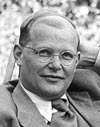 Dietrich Bonhoeffer (1906 – 1945) German Lutheran Pastor who was consistently outspoken in his criticism of Nazism in Germany. Preferring to stay in the country of his birth, he was eventually arrested and executed in Flossian concentration camp.
Dietrich Bonhoeffer (1906 – 1945) German Lutheran Pastor who was consistently outspoken in his criticism of Nazism in Germany. Preferring to stay in the country of his birth, he was eventually arrested and executed in Flossian concentration camp.

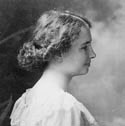 Helen Keller (1880-1968) – Overcame the dual disability of deaf-blindness to champion the deaf and helped improve societies treatment of deaf people.
Helen Keller (1880-1968) – Overcame the dual disability of deaf-blindness to champion the deaf and helped improve societies treatment of deaf people.
 Moses After escaping from his slavery in Egypt led his people out of Egypt and across the Red Sea.
Moses After escaping from his slavery in Egypt led his people out of Egypt and across the Red Sea.
 Jesus Christ (0 – 33 AD) Jesus stuck to the truth of his message, despite the consequences. On many occasions, he had the opportunity to escape or change his message. But, he felt the right thing to do was to suffer outer humiliation and pain in order to leave a legacy of spiritual truth.
Jesus Christ (0 – 33 AD) Jesus stuck to the truth of his message, despite the consequences. On many occasions, he had the opportunity to escape or change his message. But, he felt the right thing to do was to suffer outer humiliation and pain in order to leave a legacy of spiritual truth.
 Thomas Jefferson (1743-1826) A key figure in the American revolution and foremost author of the Declaration of Independence. Jefferson sought to challenge existing policies on religious tolerance, education and slavery.
Thomas Jefferson (1743-1826) A key figure in the American revolution and foremost author of the Declaration of Independence. Jefferson sought to challenge existing policies on religious tolerance, education and slavery.
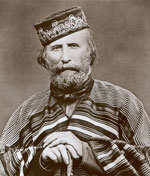 Giuseppe Garibaldi (1805-1872) – National hero of Italy. Garibaldi led a volunteer army in the Italian wars of Independence. He played a key role in uniting Italy and ending foreign rule. He also fought in Latin America and became known as ‘The Hero of Two Worlds’.
Giuseppe Garibaldi (1805-1872) – National hero of Italy. Garibaldi led a volunteer army in the Italian wars of Independence. He played a key role in uniting Italy and ending foreign rule. He also fought in Latin America and became known as ‘The Hero of Two Worlds’.
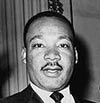 Martin Luther King (1929 – 1968) A symbol of the fight against racial discrimination. Martin Luther King passionately supported the civil rights movement, despite virulent opposition and discrimination in parts of America.
Martin Luther King (1929 – 1968) A symbol of the fight against racial discrimination. Martin Luther King passionately supported the civil rights movement, despite virulent opposition and discrimination in parts of America.
 Nelson Mandela (1918 – 2013) Nelson Mandela had the courage to fight against the unjust system of apartheid. For his political activities, he was sentenced to 20 years in prison, but he was released to lead a free South Africa.
Nelson Mandela (1918 – 2013) Nelson Mandela had the courage to fight against the unjust system of apartheid. For his political activities, he was sentenced to 20 years in prison, but he was released to lead a free South Africa.

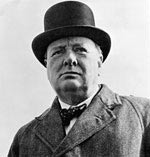 Winston Churchill (1874 – 1965) In 1940, Britain stood, alone against Nazi Germany. Some in Britain wanted to seek a deal with Hitler, but Churchill wanted to fight on, and he inspired Britain through their darkest hour.
Winston Churchill (1874 – 1965) In 1940, Britain stood, alone against Nazi Germany. Some in Britain wanted to seek a deal with Hitler, but Churchill wanted to fight on, and he inspired Britain through their darkest hour.
 Rosa Parks (1913-2005) Refused to give up her seat on a bus in Montgomery, Alabama and started a mass protest which led to the end of segregation on public transport.
Rosa Parks (1913-2005) Refused to give up her seat on a bus in Montgomery, Alabama and started a mass protest which led to the end of segregation on public transport.
 Socrates (469 BC–399 BC) – Greek philosopher. Socrates was willing to die for his beliefs. Arrested for his philosophic teachings, Socrates was willing to accept death rather than change his opinions and beliefs. It is said he calmly accepted his fate.
Socrates (469 BC–399 BC) – Greek philosopher. Socrates was willing to die for his beliefs. Arrested for his philosophic teachings, Socrates was willing to accept death rather than change his opinions and beliefs. It is said he calmly accepted his fate.
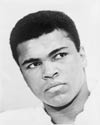 Muhammad Ali Refused to fight in Vietnam despite having the threat of public opprobrium and jail.
Muhammad Ali Refused to fight in Vietnam despite having the threat of public opprobrium and jail.

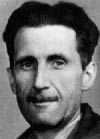 George Orwell (1903 – 1950) – Went to fight in the Spanish civil war because of his sympathies for the Republican movement. Also, gave up his privileged upbringing to work as a ‘down and out’ worker in Paris and London.
George Orwell (1903 – 1950) – Went to fight in the Spanish civil war because of his sympathies for the Republican movement. Also, gave up his privileged upbringing to work as a ‘down and out’ worker in Paris and London.
 Mahatma Gandhi. (1869 – 1948) Leader of the non-violent movement for Indian independence. Gandhi led the influential Salt Tax protest and was jailed several times for his protests against British rule.
Mahatma Gandhi. (1869 – 1948) Leader of the non-violent movement for Indian independence. Gandhi led the influential Salt Tax protest and was jailed several times for his protests against British rule.
Ida B. Wells
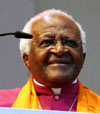 Desmond Tutu – Outspoken critic of the apartheid regime in South Africa. A leading figure in the reconciliation movement in the post-apartheid era.
Desmond Tutu – Outspoken critic of the apartheid regime in South Africa. A leading figure in the reconciliation movement in the post-apartheid era.
 Dalai Lama – Spiritual and political leader of the Tibetan people. Led non-violent resistance to Chinese rule in Tibet.
Dalai Lama – Spiritual and political leader of the Tibetan people. Led non-violent resistance to Chinese rule in Tibet.
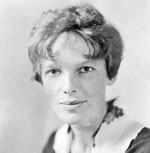 Amelia Earhart (1897 – 1937) – First female to fly solo across the Atlantic in 1928. Disappeared while attempting to be the first female to circumnavigate the world.
Amelia Earhart (1897 – 1937) – First female to fly solo across the Atlantic in 1928. Disappeared while attempting to be the first female to circumnavigate the world.

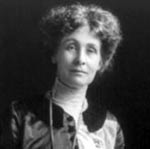 Emmeline Pankhurst – Leading suffragette in the UK. Emmeline Pankhurst went to jail several times for her protests to gain women the vote.
Emmeline Pankhurst – Leading suffragette in the UK. Emmeline Pankhurst went to jail several times for her protests to gain women the vote.


 Simon Bolivar (1783 – 1830) Bolivar led several Latin American countries (Peru, Bolivar, Colombia, Ecuador, Venezuela) to independence from the Spanish monarchy. He overcame challenging conditions, superior forces and led his troops on daring crossings of the Andes – in the height of winter.
Simon Bolivar (1783 – 1830) Bolivar led several Latin American countries (Peru, Bolivar, Colombia, Ecuador, Venezuela) to independence from the Spanish monarchy. He overcame challenging conditions, superior forces and led his troops on daring crossings of the Andes – in the height of winter.
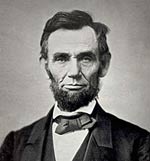 Abraham Lincoln – US president during American civil war. Later extended aims of civil war to ending slavery in America.
Abraham Lincoln – US president during American civil war. Later extended aims of civil war to ending slavery in America.
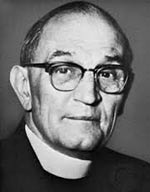 Martin Niemöller (1892 – 1984) Lutheran pastor and anti-nazi theologian. A founder of the Confessional church which sought to reject the Nazification of churches. He opposed the idea of Aryan supremacy. For his opposition to Nazi ideology, he was imprisoned in concentration camps until the end of the war.
Martin Niemöller (1892 – 1984) Lutheran pastor and anti-nazi theologian. A founder of the Confessional church which sought to reject the Nazification of churches. He opposed the idea of Aryan supremacy. For his opposition to Nazi ideology, he was imprisoned in concentration camps until the end of the war.
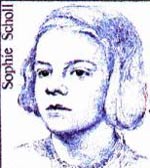 Sophie Scholl (1921-1943) German student who took part in the White Rose Resistance group who opposed Hitler and the Nazi Party. She was arrested in 1943 for distributing anti-war leaflets and was executed.
Sophie Scholl (1921-1943) German student who took part in the White Rose Resistance group who opposed Hitler and the Nazi Party. She was arrested in 1943 for distributing anti-war leaflets and was executed.
 William Wilberforce (1759 – 1833) – A leader of the campaign against slavery in Britain. He lived to see the passage of the Slavery Abolition Act 1933, which was passed after overcoming opposition from interested parties.
William Wilberforce (1759 – 1833) – A leader of the campaign against slavery in Britain. He lived to see the passage of the Slavery Abolition Act 1933, which was passed after overcoming opposition from interested parties.
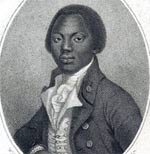 Olaudah Equiano (1745 – 1797) – The first black African slave to write about his experience as a slave. His book ‘The Interesting Narrative of the Life of Olaudah Equiano‘ played a pivotal role in turning public opinion in Britain against slavery.
Olaudah Equiano (1745 – 1797) – The first black African slave to write about his experience as a slave. His book ‘The Interesting Narrative of the Life of Olaudah Equiano‘ played a pivotal role in turning public opinion in Britain against slavery.
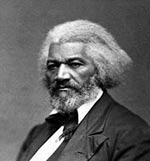 Frederick Douglass (1818-1895) Douglass escaped slavery and became a leading figurehead in the anti-slavery movement in the US. His dazzling oratory and powerful writing impressed many people and helped to show the intellectual capacities of those held in slavery.
Frederick Douglass (1818-1895) Douglass escaped slavery and became a leading figurehead in the anti-slavery movement in the US. His dazzling oratory and powerful writing impressed many people and helped to show the intellectual capacities of those held in slavery.

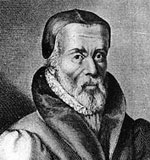 William Tyndale (1494 – 1536) – Translated the Bible into English, which at the time was forbidden. For his controversial views and belief that everyone should be able to read the Bible in their native tongue, he was later arrested and executed.
William Tyndale (1494 – 1536) – Translated the Bible into English, which at the time was forbidden. For his controversial views and belief that everyone should be able to read the Bible in their native tongue, he was later arrested and executed.
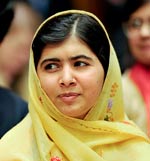 Malala Yousafzai (1997 – ) – Pakistani schoolgirl who defied threats of the Taliban to campaign for the right to education. She survived being shot in the head by the Taliban and has become a global advocate for human rights, women’s rights and the right to education.
Malala Yousafzai (1997 – ) – Pakistani schoolgirl who defied threats of the Taliban to campaign for the right to education. She survived being shot in the head by the Taliban and has become a global advocate for human rights, women’s rights and the right to education.
 Mikhail Gorbachev (1931 – ) Gorbachev was willing to erode his own power base, though his policies of liberating the politics and economics of the Soviet Union. His policies invoked the ire of those who lost out, leading to his replacement in 1990.
Mikhail Gorbachev (1931 – ) Gorbachev was willing to erode his own power base, though his policies of liberating the politics and economics of the Soviet Union. His policies invoked the ire of those who lost out, leading to his replacement in 1990.
 Greta Thunberg (2003 – ) Swedish schoolgirl who has become a global leader for environmental issues and protests against global warming. She has received much opposition from politics figures who feel threatened by the challenge to orthodox policies of growth and consumption.
Greta Thunberg (2003 – ) Swedish schoolgirl who has become a global leader for environmental issues and protests against global warming. She has received much opposition from politics figures who feel threatened by the challenge to orthodox policies of growth and consumption.



Citation: Pettinger, Tejvan. “Courageous People”, Oxford, UK. biographyonline.net, Published 28 Feb 2012. Last updated 12 February 2020.
Courage for beginners
Courage for Beginners at Amazon
by Karen Harrington
Related pages




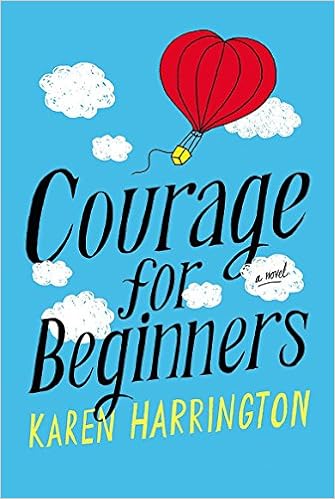
58 Comments
This helped me with my project so much
I TOTALLY AGREE
The greatest man of moral courage in the history of the whole mankind was Prophet Muhammad (PBUH) who was also a man of versatile human and social qualities and a great benefactor of the whole mankind has unfortunately been missed in the above mentioned list.
who is Dalai Lama
mierda le dije al maestro si podia eligir a hicter y era de personas buenas XD caba de cagauar
where is morgan wallen?